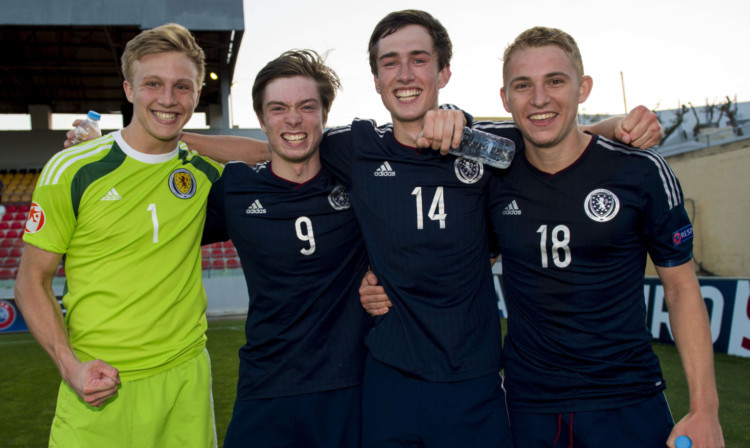
Strach lays it on the line for young Scots.
Gordon Strachan has challenged Scotland’s young stars to sacrifice themselves to claim a top-level career.
The country’s Under-17s returned home from the European Championship Finals this week to widespread praise.
Yet while sharing the public’s enthusiasm for their displays, the national coach maintains they must use their Maltese experiences as a starting point for future success.
“Listen, they have done very well,” says Strachan.
“They beat Germany, which is impressive at any level, and Switzerland as well before coming up against a very strong Holland side in the semi-final.
“So, OK, the players have talent, and they have put themselves in a position where they have a decent chance of becoming a footballer. The question is what are they going to do about it?
“Are they going to sit there, hoping they are going to be a football player, and enjoy the fact people are saying you got to the semi-final of something.
“Or, do they say: ‘Right, I’m going to go out and become a top player’. Do they go out and sacrifice everything and I mean everything to get there?
“That is where the people their age have to be ‘Can I sacrifice myself? Can I give every hour I possibly can to make me as good as I can be with the assets I’ve got?’ That’s the key thing now.
“And that is what will decide whether they go on to become a top player, or whether in 10 years’ time we will be talking about them playing in the First Division in Scotland.”
Strachan backs his argument with an example from his own experience.
“When I was with Scotland’s Under-15s, we got a 4-4 draw with West Germany, and what a game that was,” he recalls.
“We all thought we were good players after that but not everyone in that side made it.
“To be fair, some had bad luck but others simply didn’t dedicate themselves to the game.
“Good results will make us sit up and take notice, and make us proud. But things become different for these kids now.
“It stops becoming a handicap race and they will be in with players of all ages. It becomes a lot harder when that happens.
“So, again, what are you going to do about it? Sit there and hope you get better or make yourself a better player?
“Listen, it is not all about: ‘Have we got the best training camps? Have we got the best surfaces? Have we got the best sports psychologists?
“It’s all to do with you. What are you going to give up? Are you going play at it and just enjoy the trappings of being a footballer or do you want to be a top, top player?”

Enjoy the convenience of having The Sunday Post delivered as a digital ePaper straight to your smartphone, tablet or computer.
Subscribe for only £5.49 a month and enjoy all the benefits of the printed paper as a digital replica.
Subscribe